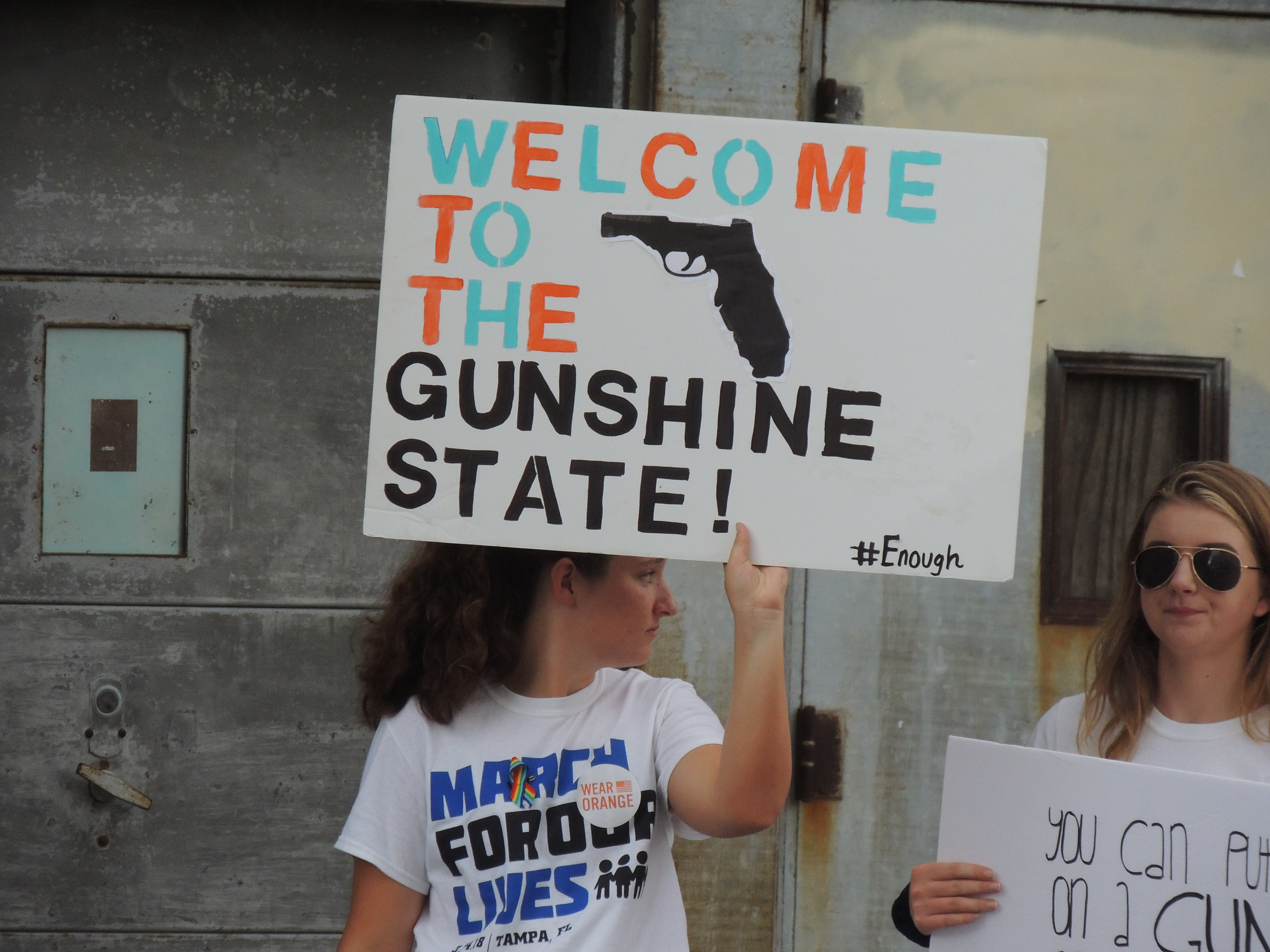
Here is a link to many coronavirus resources
Gun and ammunition sales in Florida and elsewhere in the U.S. have spiked during the coronavirus emergency. That could be very dangerous for victims of domestic violence.
Julia Weber is an implementation director with the Giffords Law Center to Prevent Gun Violence.
“The information we’re getting from a variety of sources suggests that there’s been a huge uptick in ammunition purchases as well as a significant increase in the purchase of firearms in various locations around the country.
“That’s information coming in from places like ammo.com that gather that kind of information, gun shops, as well as some information coming in from states that are still able to report background check information. Background checks there are reports of delays, you know, things that used to take a few minutes are taking up to three days. So there’s just a significant increase in volume of purchases of both firearms and ammunition.
“The presence of a firearm in a home where domestic violence is being perpetrated increases the risk of lethality significantly.
“When a male abusive partner has access to a firearm, a female victim of domestic violence is five times more likely to be killed as a result of being shot. So we’re concerned about increased access to firearms.
“We’re also concerned about just the presence of firearms being used as a threat. There are millions of victims of domestic violence who report being shot or shot at.
“Lethal outcomes are certainly one problem but so is living with the presence of a firearm that can be used to intimidate, threaten or cause injuries not only just the adult victim but also for children in the home. We know there are 4.6 million children living in homes where guns are improperly locked or stored.
“And as a result of having increased access to firearms where children are present can be a concern for their well being as well.”
National Domestic Violence Hotline – 1-800-799-7233 or text LOVEIS to 22522
National Suicide Prevention Lifeline – 1-800-273-8255
Listen to the three segments of this interview here:
“Unfortunately for too many people, it’s not compatible with safety to be required to stay at home.
“So, home does not end up being the safest place for those who are struggling with domestic violence and often work and school and outside contacts provide much greater protection. And when those are no longer available people are at risk because they’re isolated, they may not be able to get in touch with counselors or support services.
“They may not be able to obtain a restraining order or get the help from law enforcement. They may not be able to get to the emergency room or a doctor to get help with injuries.
“So, the isolation combined with the stress, people are under a lot of financial stress, people are in close quarters spending much more time together. Emotionally this can be a very very precarious time for people. And we also know that too often abusive partners use things like threats from outside or the possibility of being in violation of existing requirements to stay home to further control the partner.
“So they may say you can’t go out because you aren’t allowed to go out and prevent them from going to the store, from getting necessities, deny them access to medication. Using the legitimate requirement to stay in as much as possible but in a way that further erodes their contact with the outside world and puts them and their children at risk. …”
“Well we need to prioritize funding that supports greater access to safe shelter and housing. It’s critical that any restrictions on funding for domestic violence victims or others who may need access to housing be loosened as much as possible so that they can prioritize getting to safe spaces.
“We also need to make sure that we’re getting the word out about the risk associated with domestic violence and firearms. Unfortunately, too many people aren’t aware that having a firearm in the home when domestic violence is an issue puts everybody at risk.
“So getting the word out is critical and also ensuring that people have information about being able to contact the national domestic violence hotline or the national suicide prevention lifeline. Those are two resources that if people are able to call or chat, text, they may be able to get some support for safety planning their particular situation.
“These are diverse situations for people and they need to reach out and get as much help as possible and we need to be providing resources as best we can to contact people who may be at risk in their homes.”
Listen to the 5:30 p.m. WMNF News headlines for 24 March 2020:
Listen to the 4:30 p.m. WMNF News headlines for 24 March 2020:
Listen to the 3:30 p.m. WMNF News headlines for 24 March 2020:
Leave a Reply










